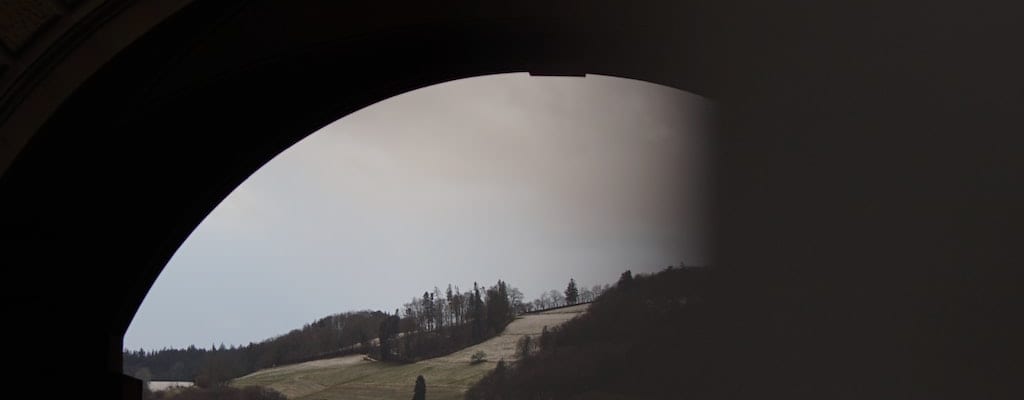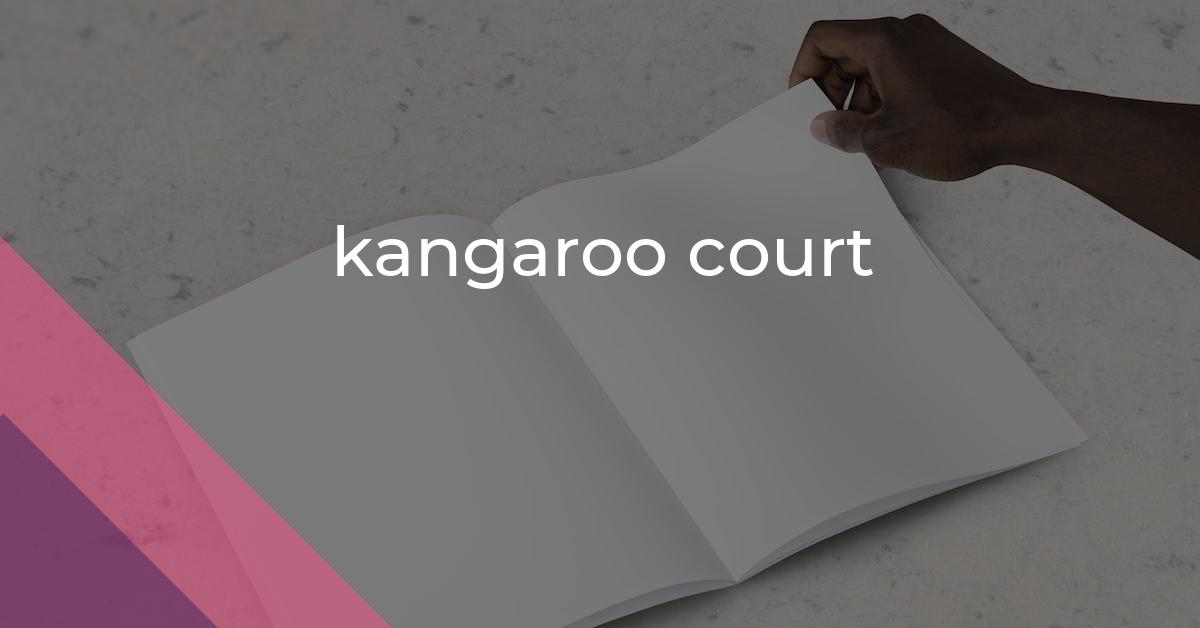kangaroo court: Idiom Meaning and Origin
What does ‘kangaroo court’ mean?
A kangaroo court refers to a mock or illegitimate judicial proceeding. The term implies a biased or unfair trial, lacking proper procedures and disregarding the principles of justice.

Idiom Explorer
The idiom "rough justice" means to administer justice in a harsh or unfair manner, without proper consideration of the facts or the law.
The idiom "just deserts" means to receive the appropriate punishment or reward for one's actions.
The idiom "jury is out" means that a decision or verdict has not been reached yet and it is still uncertain or undetermined. It can be used when discussing a situation or topic where the outcome or final judgment is not clear.
The idiom "judge, jury, and executioner" refers to a person who takes on multiple roles in a situation, unilaterally making decisions and carrying out their own form of justice without any oversight or input from others.
The idiom "in the interest of justice" means to take action or make a decision based on what is fair and right, rather than personal gain or bias.
The idiom "in the dock" means to be on trial or facing judgment in a court of law. It is commonly used to describe someone who is accused of a crime or wrongdoing and has to defend themselves in a legal setting.
The idiom "guilty pleasure" refers to something that provides enjoyment or satisfaction, but is considered shameful or embarrassing due to societal judgment or personal feelings of guilt.
The idiom "grey area" refers to a situation or issue that is unclear, vague, or not easily categorized as right or wrong.
The idiom "go rogue" means to act in a rebellious and unpredictable manner, disregarding rules or expectations. It refers to someone who goes against the established norms or authority, often causing disruption or chaos.
Mysterious Judicial Proceedings
"Kangaroo court" is an idiom used in the United States to describe a mock or illegitimate court or legal proceeding that lacks proper authority or fairness. This idiom criticizes situations where justice is not served and the outcome is predetermined or biased. The term "kangaroo court" was first used in the mid-19th century and is believed to have originated in the Australian outback."
One theory suggests that the idiom originated during the California Gold Rush in the 1850s when miners would hold impromptu court sessions to quickly dispense justice. These proceedings were hasty and lacked proper legal procedures, leading to the comparison with kangaroos, known for their jumping and unpredictable movements.
Another theory proposes that the idiom was influenced by the phrase "kangaroo dock," which was commonly used in 19th-century Britain to describe a dockyard courtroom where quick, summary justice was dispensed to sailors accused of minor offenses. The term "kangaroo" in this context likely connoted speed and informality.
Regardless of its origins, the idiom "kangaroo court" emerged in American English as a way to critique and condemn legal proceedings that were unfair, biased, or lacked proper authority. It implies strong disapproval of the process and suggests that justice is being subverted.
Today, the idiom "kangaroo court" is commonly used in discussions of politics, sports, and organizational matters. It metaphorically highlights situations where decisions are made without due process, impartiality, or transparency. It is important to note that the term is considered informal and is typically used in a negative or critical sense.
Another related idiom that is closely associated with "kangaroo court" is "rough justice." This idiom conveys the idea of justice being administered in an unfair or arbitrary manner, without proper legal procedures. It suggests a lack of due process and often implies a biased or predetermined outcome.
Similarly, the idiom "court of public opinion" is related to "kangaroo court." It refers to the phenomenon where public sentiment or popular opinion influences judgments or decisions, regardless of legal procedures or evidence. In this context, "kangaroo court" can be seen as a metaphorical extension of the notion of the court of public opinion, highlighting the lack of fairness, authority, and legal validity in the proceedings.
"in the dock" is another idiom related to "kangaroo court." This idiom refers to a person being on trial or facing charges in a court of law. It suggests that the person is under scrutiny, accused, or responsible for their actions. In the context of "kangaroo court," the person in the dock is likely to face an unfair trial or prejudiced judgment due to the lack of proper legal procedures and fairness.
The idiom "judge, jury, and executioner" is closely associated with "kangaroo court" as well. It conveys the idea of a person or entity assuming multiple roles, often with unchecked power, authority, and the ability to dictate or enforce judgments without due process or fair deliberation. In a "kangaroo court," the decision-maker is often perceived as playing the roles of judge, jury, and executioner, undermining the principles of justice.
The idiom "kangaroo court" originated in the mid-19th century to describe a mock or illegitimate court or legal proceeding lacking proper authority or fairness. It can be related to idioms such as "rough justice," "court of public opinion," "in the dock," and "judge, jury, and executioner." These idioms highlight various aspects of unfairness, bias, lack of proper procedures, and subjective decision-making associated with the concept of a "kangaroo court."
Example usage
Examples of how the idiom *kangaroo court* can be used in a sentence:
- The trial was a complete mockery of justice, nothing more than a kangaroo court.
- It was clear that the judge already had a bias against the defendant; it felt like we were in a kangaroo court.
- The employees felt they were being unfairly treated and accused in a kangaroo court by their manager.
More "Legal" idioms



